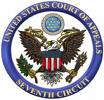Seventh Circuit Criminal Case of the Week: Another Questionable Statement by a Prosecutor
 On several occasions recently, the Seventh Circuit has been critical of statements made by prosecutors to jurors. (See, for instance, my posts here, here, and here.) Another questionable comment by a prosecutor was the subject of this week’s decision in United States v. Myers (No. 07-3658) (Manion, J.).
On several occasions recently, the Seventh Circuit has been critical of statements made by prosecutors to jurors. (See, for instance, my posts here, here, and here.) Another questionable comment by a prosecutor was the subject of this week’s decision in United States v. Myers (No. 07-3658) (Manion, J.).
Myers was tried on arson charges. During closing arguments, defense counsel highlighted the fact that gasoline was not found by investigators on the floor of the building that Myers allegedly burned down. In response, the prosecutor stated:
[A]ny speculation on the part of [defense counsel] about why or why there wasn’t gasoline can be easily explained by the fact that there were firefighters that were in there that night trying to extinguish that fire with water. Water has a tendency to sweep through and remove all sorts of different things that might have been on the ground. So, ladies and gentlemen, that’s an easy explainable different part of what [defense counsel] was trying to suggest.
On appeal following his conviction, Myers challenged this statement as prosecutorial misconduct.
In addressing Myers’ argument, the Seventh Circuit noted that the government was free to argue “the mere possibility that water could have cleaned or diluted the surface of the carpet.” The problem was that “the government did not couch its argument in such hypothetical terms.”

 The Seventh Circuit had some interesting commentary on a number of different sentencing factors in
The Seventh Circuit had some interesting commentary on a number of different sentencing factors in